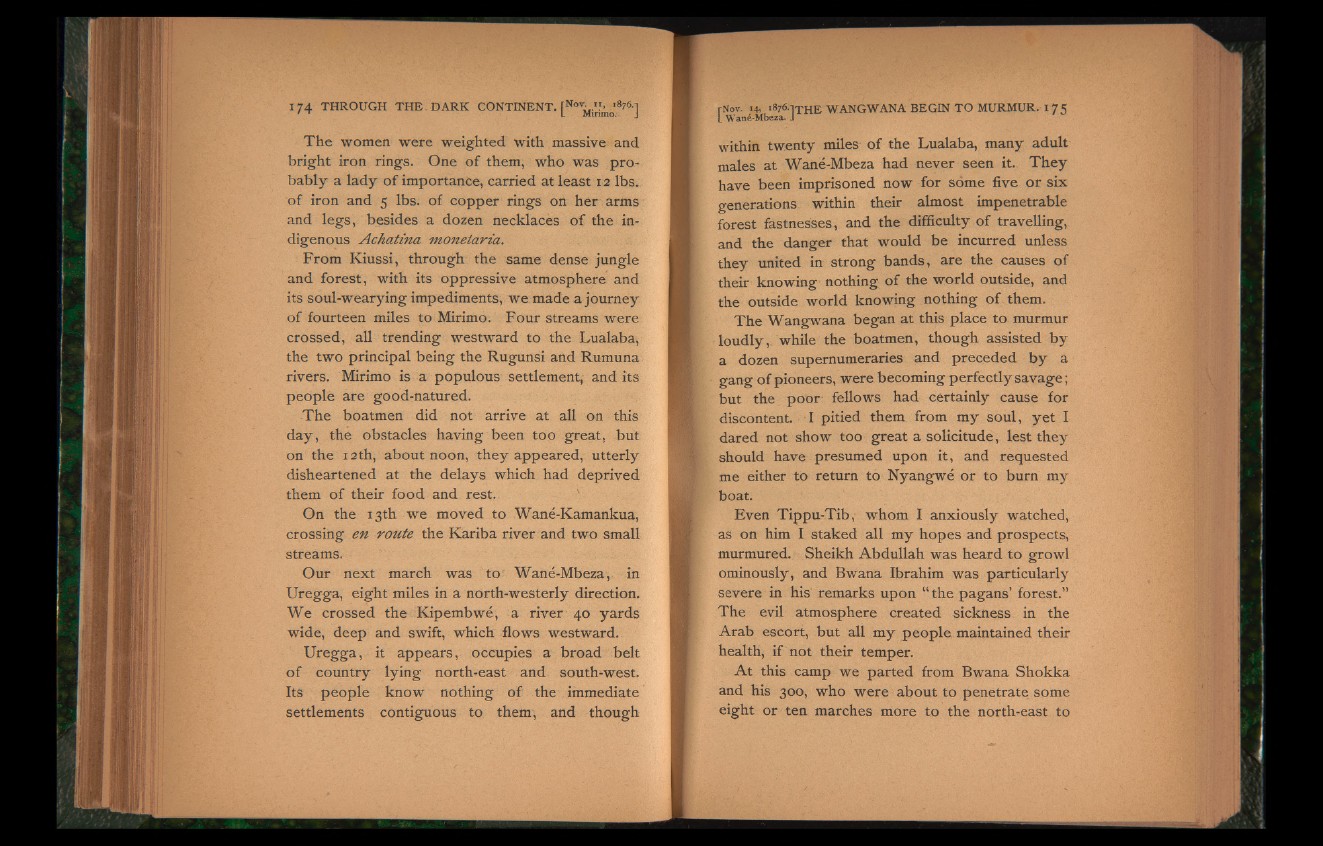
The women were weighted with massive and
bright iron rings. One of them, who was probably
a lady of importance, carried at least 12 lbs.
of iron and 5 lbs. of copper rings on her arms
and legs, besides a dozen necklaces of the indigenous
Achatina monetaria.
From Kiussi, through the same dense jungle
and forest, with its oppressive atmosphere and
its soul-wearying impediments, we made a journey
of fourteen miles to Mirimo. Four streams were
crossed, all trending westward to the Lualaba,
the two principal being the Rugunsi and Rumuna
rivers. Mirimo is a populous settlement, and its
people are good-natured.
The boatmen did not arrive at all on this
day, the obstacles having been too great, but
on the 12th, about noon, they appeared, utterly
disheartened at the delays which had deprived
them of their food and rest.
On the 13th we moved to Wane-Kamankua,
crossing en route the Kariba river and two small
streams.
Our next march was to Wane-Mbeza, in
Uregga, eight miles in a north-westerly direction.
We crossed the Kipembwe, a river 40 yards
wide, deep and swift, which flows westward.
Uregga, it appears, occupies a broad belt
of country lying north-east and south-west.
Its people know nothing of the immediate
settlements contiguous to them, and though
,-nov. 14, i876 iTHe wangwana begin t o murmur. 175
L Wane-Mbeza. J
within twenty miles of the Lualaba, many adult
males at Wane-Mbeza had never seen it. They
have been imprisoned now for some five or six
generations within their almost impenetrable
forest fastnesses, and the difficulty of travelling,
and the danger that would be incurred unless
they united in strong bands, are the causes of
their knowing nothing of the world outside, and
the outside world knowing nothing of them.
The Wangwana began at this place to murmur
loudly, while the boatmen, though assisted by
a dozen supernumeraries and preceded by a
gang of pioneers, were becoming perfectly savage;
but the poor fellows had certainly cause for
discontent. I pitied them from my soul, yet I
dared not show too great a solicitude, lest they
should have presumed upon it, and requested
me either to return to Nyangwe or to burn my
boat.
Even Tippu-Tib, whom I anxiously watched,
as on him I staked all my hopes and prospects,
murmured. Sheikh Abdullah was heard to growl
ominously, and Bwana Ibrahim was particularly
severe in his remarks upon “ the pagans’ forest.”
The evil atmosphere created sickness in the
Arab escort, but all my people maintained their
health, if not their temper.
At this camp we parted from Bwana Shokka
and his 300, who were about to penetrate some
eight or ten marches more to the north-east to